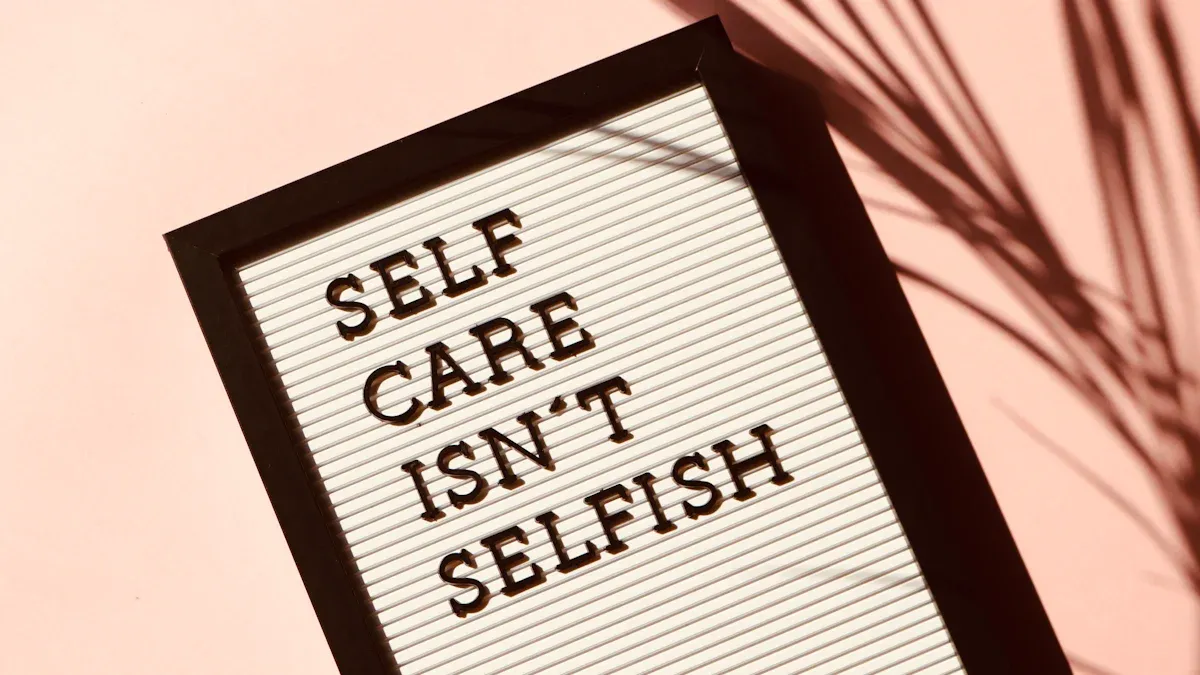If you’re struggling with unrequited love, you’re not alone. Studies show that more than half of people go through this kind of heartbreak at some point in their lives. It’s normal to feel sad, anxious, or even physically drained when your feelings aren’t returned. You might notice headaches, trouble sleeping, or a loss of appetite. > Remember, these reactions are part of being human, and you can heal. Each step you take brings you closer to feeling better and growing stronger.
Key Takeaways
- Let yourself feel sad and hurt so you can start to heal. This helps you not make things worse. Set clear rules by not talking to the person much. This keeps your heart safe and helps you feel in control. Talk to friends, family, or a counselor for help. This makes you feel less lonely and gives you new ideas. Try new hobbies and do fun things to feel better. This helps you feel more sure of yourself and make new memories. Give yourself time to feel sad and get better. Healing takes time and helps you become stronger and find new chances.
Understanding Unrequited Love
Why It Hurts
Unrequited love is when you really like someone, but they do not feel the same way. This love only goes one way. You may wish for a relationship, but the other person does not want that. Experts say unrequited love can make you feel strong emotions. You might feel longing, heartbreak, or even get stuck thinking about the person. You could feel sad, lonely, or like you are not good enough. Sometimes, you might blame yourself or wonder if you did something wrong.
When you care for someone who does not care back, your brain reacts strongly. Chemicals in your brain, like dopamine and oxytocin, drop quickly. These chemicals usually help you feel happy and close to others. When they drop, you can feel anxious, stressed, or even sick. You might have trouble sleeping, not want to eat, or feel a heavy chest. These feelings are normal. Your brain feels the pain of unrequited love almost like real pain.
Many people go through:
- Wanting to be with the person
- Feeling empty or alone
- Not feeling good about themselves
- Feeling guilty or ashamed
- Not wanting to believe they were rejected
You are not the only one who feels this way. Unrequited love happens a lot. It can happen with friends, at work, or with someone you barely know.
Accept Your Feelings
It is normal to feel sad or let down. If you try to hide your feelings, it can make things harder. Experts say you should notice and accept your feelings. Let yourself feel sad and miss what you hoped for. This helps you start to heal and move on.
- When you accept your feelings, you let yourself feel pain without being hard on yourself.
- Talking about what happened or sharing your feelings through art or writing can help you let go.
- Accepting your feelings helps you stop depending on one person for happiness. You start to see that you can be happy without them.
Healing takes time. You can get stronger and find happiness again, even after unrequited love.
Set Boundaries
Setting boundaries is one of the most important steps you can take when moving on from unrequited love. Boundaries help protect your heart and give you space to heal. Without them, you might feel stuck, hurt, or even lose sight of who you are. You deserve to feel safe and respected, even if your feelings are not returned.
Limit Contact
When you have strong feelings for someone who does not feel the same, seeing or talking to them can make things harder. Relationship experts suggest you:
- Limit or stop contact with the person for a while. This gives your mind and heart time to rest.
- Unfollow or mute them on social media. This helps you avoid reminders that can trigger sadness.
- Stay away from places where you might run into them.
- Try a “no contact” period for at least three or four weeks. This break can help you process your emotions.
- Focus on your own growth and happiness during this time.
If you keep talking to or seeing the person, you might feel more pain, stress, or even start to depend on them for your happiness. Reducing contact helps you break this cycle and start to feel better.
Therapists also say that limiting contact can stop obsessive thoughts and help you regain control over your feelings. You might notice you sleep better, worry less, and start to enjoy other parts of your life again.
Be Honest and Clear
Being honest about your feelings and needs is key. If you want to stay friends, you need to talk openly about what you can and cannot handle. Here are some tips from relationship counselors:
| Therapy Method | Communication Techniques for Boundaries |
|---|---|
| Imago Relationship Therapy | Use “I” statements and listen with empathy. |
| Mindfulness-Based Cognitive Therapy | Stay calm, be aware of your feelings, and show self-compassion. |
| Interpersonal Therapy | Be assertive and clear, but also respectful. |
| Cognitive-Behavioral Therapy | Reframe negative thoughts and say “no” when needed. |
- Use “I” statements, like “I need some space right now.”
- Ask for feedback to make sure you both understand each other.
- Choose a calm time to talk, not when you feel upset.
Setting boundaries is not selfish. It is a way to care for yourself and protect your well-being. When you are honest and clear, you give yourself the best chance to heal and move forward.
Focus on Self-Care

Reconnect with Support
You do not have to go through heartbreak alone. Reaching out to others can make a huge difference. When you talk to friends or family, you get a chance to share your feelings and feel understood. Trusted people can listen, give advice, or just sit with you when you feel down. Sometimes, you might want to join a support group or talk to a counselor. These people know how to help you work through tough emotions.
Social support gives you a sense of belonging and helps you feel less alone. It can also help you see things from a new point of view.
Here are some ways to reconnect with support:
- Call or text a close friend and tell them how you feel.
- Spend time with family members who care about you.
- Join a club or group where you can meet new people.
- Try talking to a school counselor or therapist if you need extra help.
A strong support network helps you heal faster. You get to share your story, learn from others, and remember that you are not alone in your pain.
Explore New Interests
Trying something new can help you move forward. When you focus on a new hobby or activity, your mind gets a break from thinking about the person you miss. You also get a chance to feel proud of yourself and find joy in new places.
Some ideas to get started:
- Take up yoga or try a new sport like swimming or running.
- Learn to cook a new recipe or bake something sweet.
- Start a creative project, like painting, writing, or playing music.
- Spend time in nature, go for a walk, or try gardening.
- Join a club, learn a new language, or volunteer in your community.
New activities help your brain build fresh memories and reward pathways. They also boost your mood and help you meet new friends.
When you try new things, you give yourself a chance to grow. You might even discover a hidden talent or passion. Each small step helps you feel better and brings you closer to healing.
Reframe the Experience
Learn and Grow
When you look at unrequited love as a chance to learn, you start to see things differently. Instead of asking, “Why did this happen to me?” you can ask, “What can I learn from this?” This shift helps you understand your own needs and boundaries. You might notice why you stayed in a one-sided relationship or what you want in the future.
- Try to replace negative thoughts with more hopeful ones. For example, change “I’ll never get over this” to “I have felt this way before, and I did get better.”
- Ask yourself if your thoughts are true and helpful. Sometimes, you feel bad about feeling bad. That’s normal, but you can let yourself feel sad without judging yourself.
- Use your imagination to picture a happier future. Instead of replaying sad memories, imagine meeting someone who values you.
- Practice letting go of needing answers. You may never know why things didn’t work out, and that’s okay.
When you reframe your experience, you give yourself space to grow. You learn more about who you are and what you need. This helps you make better choices next time.
People who move on from unrequited love often say they discover new strengths. They find more self-love and become open to new friendships and relationships. You can use this time to build a stronger, happier you.
Boost Self-Esteem
Rejection does not mean you are not good enough. It often says more about the other person’s feelings or situation. To boost your self-esteem, focus on what makes you unique and strong.
- Write in a journal about your feelings and what you like about yourself.
- Try new hobbies or set small goals. Each success builds your confidence.
- Spend time with people who make you feel good about yourself.
- Practice self-care, like eating well, sleeping enough, and doing things you enjoy.
- Use “I” statements to set boundaries and speak up for your needs.
Remember, your worth does not depend on someone else’s opinion. When you take care of yourself and focus on your strengths, you become more resilient. You bounce back faster and feel ready for new chances in life.
You can grow from this experience. With time, you will feel stronger and more confident, ready to welcome new opportunities and relationships.
Move Forward

Let Yourself Grieve
You might feel like you should just “get over it,” but healing from unrequited love takes time. Give yourself permission to grieve. Your feelings matter, and it’s okay to feel sad, angry, or confused. Many people move through different stages when dealing with heartbreak:
- Denial – You may hope things will change or feel shocked by what happened.
- Anger – You might feel upset or frustrated that your feelings were not returned.
- Bargaining – You could find yourself thinking, “What if I had done something different?”
- Depression – Sadness and tiredness can set in, making it hard to enjoy things.
- Acceptance – Over time, you start to accept what happened and feel ready to move forward.
Healing is not a race. You might go back and forth between these stages. Be patient with yourself and let your emotions come and go. Talk to friends, write in a journal, or ask for help if you need it. Each step brings you closer to feeling better.
Open to New Connections
When you feel ready, try opening your heart to new experiences. You can start by “dating yourself.” Take care of your body and mind. Go for a walk, eat healthy foods, or try a new hobby. Spend time alone and learn to enjoy your own company. Set small goals, like learning a new skill or finishing a project. These steps help you feel stronger and happier.
You might also want to reconnect with friends or meet new people. Making new friends or joining a group can help you feel less alone. Experts say that building new connections helps you grow and learn what you want in future relationships. You get to practice kindness to yourself and others. Over time, you’ll notice you feel more confident and open to new possibilities.
Remember, moving forward does not mean forgetting the past. It means giving yourself a chance to heal, grow, and find happiness again—one day at a time.
Healing from unrequited love takes time, so be gentle with yourself. Remember, your worth does not depend on someone else’s feelings. Try these steps to help you move forward:
- Accept your feelings and let yourself heal.
- Focus on self-care and activities that make you happy.
- Talk to friends or family for support.
- Stay open to new opportunities and connections.
You have so much to offer. Every day brings a new chance for growth and happiness.
FAQ
How long does it take to get over unrequited love?
Everyone heals at their own pace. You might feel better in a few weeks, or it could take months. Be patient with yourself. Healing is not a race. > Remember, small steps count!
Should you stay friends with someone you love?
You can stay friends if it feels healthy for you. Sometimes, taking a break helps you heal. Listen to your feelings. If friendship hurts, it’s okay to step back.
What if you see the person every day at school or work?
Try to keep things polite and simple. Focus on your own goals and spend time with other friends. > Tip: Take breaks when you need them and practice self-care.
Is it normal to still think about them after moving on?
Yes, it’s normal! Memories can pop up sometimes. You can notice these thoughts and let them pass. Over time, they will bother you less. 😊



Pingback: What to do during the talking stage in a relationship
Pingback: What Is a Situationship and How Does It Differ from a Relationship